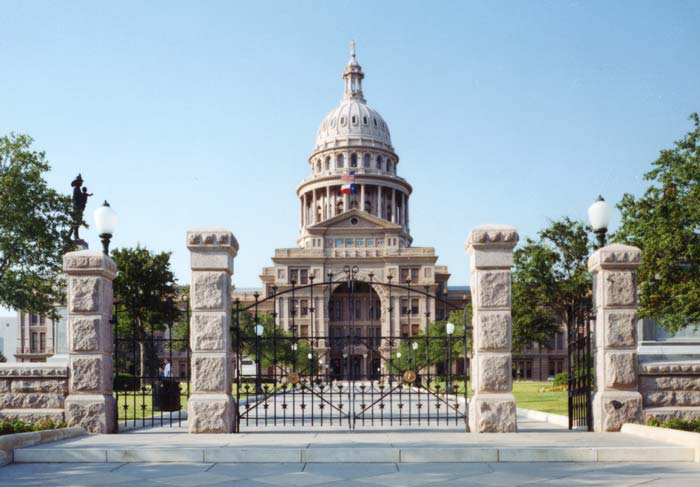Will any ethics or open government bills make it out of the legislative session?
With just hours left in the 85th Texas Legislative Session, things could change but at the moment here’s where some of the most-watched bills are in the process.
Bills intended to make legislative changes to ethics and open government laws fizzled out and didn’t have much of a chance to resurface. Senate Bill 502, authored by Sen. Van Taylor, states that registered lobbyist must report their spending on transportation, lodging, food and drink, or entertainment for a member of the legislative or executive branch if that expenditure exceeds 60 percent of the legislative per diem (currently $190). The bill also addresses the issue of “ticket splitting,” where multiple lobbyists collaborate to make payments below the reporting threshold for a larger expenditure above the reporting threshold. SB 502 will not pass.
Senate Bill 500, authored by Sen. Van Taylor, would remove elected officials from office and strip their pensions if they are convicted of felonies including bribery, embezzlement or theft of public money, perjury, and tampering with a government record. SB 500 is headed to the Governor’s desk for signature.
 House Bill 501, authored by Reps. Angie Chen Button, Giovanni Capriglione, Mary Gonzalez and Pat Fallon, requires state officials to disclose government contracts to the state Ethics Commission if ownership of a vendor is 50 percent or higher. Conferees have been appointed and the bill is currently in conference committee.
House Bill 501, authored by Reps. Angie Chen Button, Giovanni Capriglione, Mary Gonzalez and Pat Fallon, requires state officials to disclose government contracts to the state Ethics Commission if ownership of a vendor is 50 percent or higher. Conferees have been appointed and the bill is currently in conference committee.
Senate Bill 504, authored by Sen. Van Taylor, requires legislators to wait a full legislative session before they were able to lobby. An amendment to the bill made it a criminal offense for ex-legislators to pass on “official information” for two years after they leave office. SB 504 will not pass.
House Bill 505, authored by Reps. Charlie Geren, Donna Howard and Angie Chen Button, prohibits a retired officeholder who is a registered lobbyist from making a political contribution using their campaign account following their departure from office. This change prohibits former elected officials and candidates from using their campaign accounts for lobbying purposes following their retirement from public office. The bill passed both the House and the Senate and is waiting for the Governor’s signature.
House Bill 3305, authored by Reps. Lyle Larson, Giovanni Capriglione, Phil King and Walter Price, requires an individual appointed by the governor, before taking office, to sign an attestation that during the year preceding the appointment the individual, the individual’s spouse or dependent child, and an organization in the individual’s name and with the individual’s consent did not make political contributions exceeding $2,500 to the governor or a specific-purpose political committee supporting the governor as a candidate or assisting the governor as an officeholder. This also applies to the individual serving as a public officer appointed by the governor. HB 3305 will not pass.
House Bill 2328, authored by Rep. Eddie Lucio III. would establish a process for a government entity to expedite a public information request by allowing entities to withhold information that has already been approved to be exempted from disclosure. Supporters state that the bill will reduce the backlog of information requests. The bill also allows requestors who believe information they receive has been redacted inappropriately can appeal to the attorney general. This bill is still under consideration.
Senate Bill 407, authored by Sen. Kirk Watson, would have reversed a 2015 Texas Supreme Court decision that enabled companies to block the release of government information if the release of the information could provide competitors with an advantage. This ruling has been often used as a broad exemption on government bids and contracts. SB 407 will not pass.
Senate Bill 408, authored by Sen. Kirk Watson, would have reversed another 2015 Texas Supreme Court decision that allowed nonprofits receiving public money to be exempt from state open record laws. SB 408 will not pass.
Senate Bill 1655, authored by Sen. Kirk Watson would have addressed another Texas Supreme Court ruling that granted a higher degree of protection to information involving attorney-client privilege. The bill would have made sure that the ruling was not applied to other public information. SB 1655 will not pass.
House Bill 2710, authored by Rep. Todd Hunter, would have restored dates of birth in government records which supporters claim would be essential for purposes like identifying criminal suspects, helping the public obtain detailed child-support information and vetting political candidate applications. HB 2710 never made it out of committee.
House Bill 3848, authored by Rep. Todd Hunter, would have required governments to respond to open records request even if they do not have any available information. In addition, the bill would have stopped the practice of raising generic exemptions to public disclosure and would have required governments to specify claimed exemptions. HB 3848 never made it out of committee.
SB 408, SB 407, HB 2328, HB 3848, SB 1655, HB 2710 were part of the six bills added to House Bill 2328 as an amendment after the original bill stalled at the committee stage in the house. However, the House ruled that the amendments were not germane to the bill and the House voted to return each bill to the Senate as originally passed and no additional action was taken since in either chamber.
SPI’s government contracting consultants have decades of experience and personal relationships at all levels of government. Learn how they can help your company grow your business by contacting them today.

 512-531-3900
512-531-3900 Request More Info
Request More Info